Josh MacAlister isn’t wasting time.
Weeks after becoming the MP for Whitehaven and Workington in Cumbria last July, the Teach First alumnus and founder of social work training charity Frontline was trying to change the law to ban phones in schools.
Now he’s a Parliamentary aide to one of Sir Keir Starmer’s most trusted ministers and getting involved in public service reform.
But things could have been very different for the 38-year-old. He tells me when we meet in Parliament that while growing up in Rochdale, Gtr Manchester, family separation sent him “off the rails” at primary school.
He has “strong memories of being taken out of class for the ‘Biff, Chip and Kipper’ books… the red box for catch-up reading.
“And that sinking feeling of everyone else in the class moving ahead and being left behind and all the stuff that came with that, like acting out, some bad behaviour,” he adds.
MacAlister’s fortunes were turned around by the intervention of his stepfather, Peter, who “ended up doing an hour of extra reading, writing, times tables every night after school for years”.
‘Great teachers’ drove politics interest
The extra help meant he started secondary school with a “decent chance” of success.

Moving to rural southern Scotland during his secondary education, MacAlister took an interest in history, geography and politics, spurred on by current affairs discussions at home and by “great teachers”. He read politics and social policy at Edinburgh university.
He remembers being attracted to Teach First as “really the only graduate programme going that was saying to people, ‘there’s this massive social problem which is educational inequality, and we want a movement of people who are committed to going into some of the toughest schools in the country and contributing to solving that problem’.
He says: “That was such an exciting invitation, and it offered something that was a challenge that had social purpose and that, in a way, I think probably linked back to the experience I had with Peter growing up where I had someone in my life who was a champion and was able to focus on me and my development.”
‘Practising what I preached’
MacAlister taught citizenship in schools in Oldham for three-and-a-half years, or “preached what I’m now practising”, as he describes it.
He is adamant that with the government’s commitment to lower the voting age to 16 must come a “resurgence of civics in schools”.
“I really think we have to find a way of boosting civics education, and putting that together could mean we end up with the most informed, most engaged voter demographic being 16 and 17-year-olds, and completely overturning some of the preconceptions people have got about young people’s attitude to politics.”
It was during his time in the classroom and interacting with young people in care that MacAlister hit upon the idea for Frontline.
Similarly to Teach First, the charity encourages top graduates to consider the often-maligned field of social work. He remembers being told there was “no way you’d get graduates to consider doing child protection as a first step into their career.
But “when you put aside for a moment the label ‘social worker’ or child protection and describe what the task is, you’re describing somebody who is asked to go into a child’s and a family’s life, often at the point of greatest crisis, and help steer them back onto a better course, which can be totally transformational for that child”.
He adds: “You’ve got to get through that, get alongside that family and change what’s happening so that that child can have a better future. And that is one of the most extraordinary leadership challenges. Why wouldn’t people want to do it?”
Children in care review
MacAlister was picked by the last government to lead a review of children’s social care.
It made over 80 recommendations, calling for schools to become statutory safeguarding partners and “corporate parents” of children in care.
MacAlister was initially critical of ministers’ responses. The review called for £2.6 billion over five years. The last government initially allocated £200 million over two.
Many of his recommendations are now due to come to fruition as part of the children’s wellbeing and schools bill. It will introduce things like regional care cooperatives and a single unique identifier for all children.
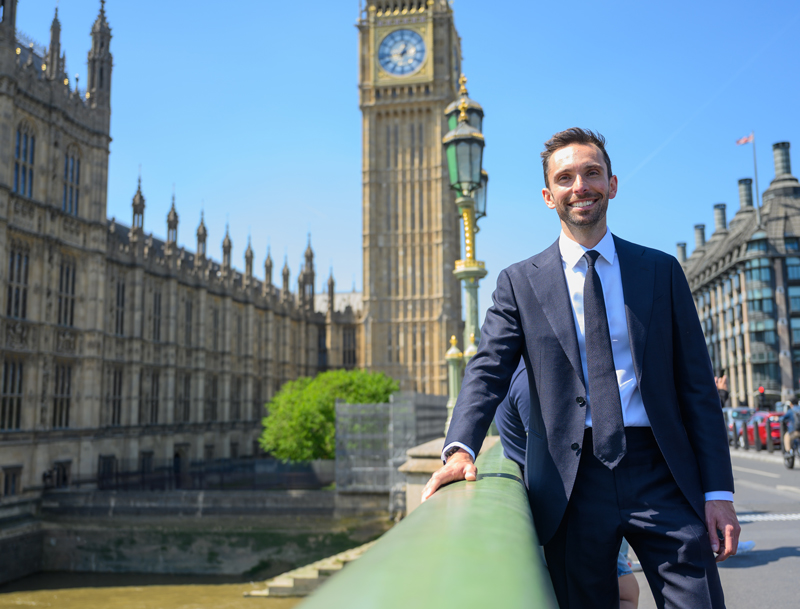
But that key advice to make schools a statutory safeguarding partner has not yet been realised.
MacAlister accepts bringing education into the safeguarding partnership system is “not straightforward”.
“You have to pick, at a strategic and an operational level, someone from the school system who can speak on behalf of and control and coordinate the school system.
“That’s hard to do when you’ve got local authorities and multi-academy trusts. But I do think that that’s moving in the right direction.”
He believes the approach needs to be tested in a “couple of partnerships” across the country to “show how it can work, and then that approach gets replicated across the system”.
‘We should be so proud of academies’
While the fragmentation of the school system presents a “coordination challenge”, MacAlister is unapologetic in his support for academies.
This is despite his constituency having been home to one of highest-profile failures in the early years of the programme’s expansion.
In 2017, the Bright Tribe trust, founded by businessman Michael Dwan, walked away from the Whitehaven Academy after it was placed in special measures and amid growing concerns about its dilapidated buildings.
MacAlister said the scandal left a “deep and visible print on the town and let down a generation of kids”.
But the “strength of the multi-academy trust system” was demonstrated after the school joined the “brilliant” Cumbria Education Trust in 2018. It was rated ‘good’ by Ofsted in 2023.
“For every high profile, visible example of educational vandalism from the likes of Bright Tribe, there were sleepy, quiet state schools completely failing generation after generation of kids,” he says.
“I’m as intolerant about one as the other.”
‘You need challenge in the system’
He points out Labour introduced the academy scheme “to make sure it’s really clear to people that we’re on the side of kids and parents, particularly in the poorest neighbourhoods.
“We should be so proud that we did that. There was huge resistance to doing it back in the 2000s.
“The Conservatives recognised it was a good agenda, and they ran with it, and I’m really pleased that we’re not turning back on that because it needs to be a part of the system that where an institution is letting kids down, we don’t tolerate it. You need that challenge in the system.”
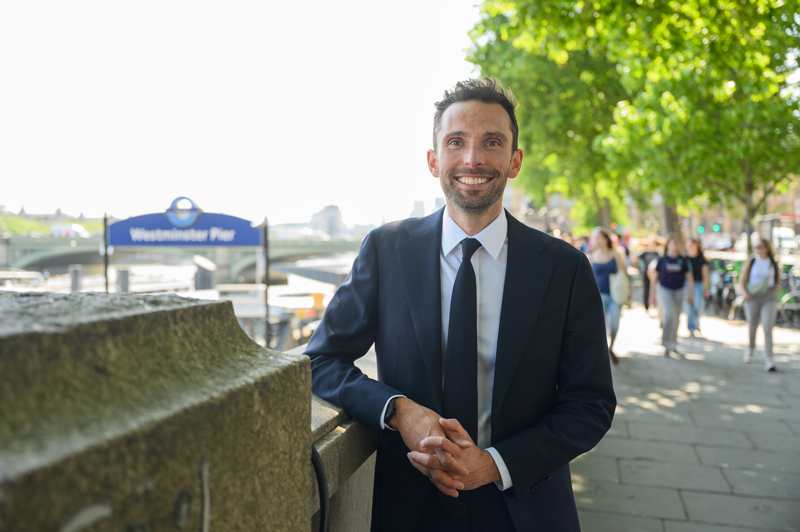
The Tories also deserve credit for “really going after standards”, MacAlister says. He remembers receiving training on learning styles, and lesson plans “crammed with loads of stuff that bore no resemblance to what the evidence said”.
“We’ve managed to, over the last 15, 20 years, take a lot of that nonsense out of the education system, and it’s all for the better.”
But he doesn’t share the fears of some academy supporters that Labour’s reforms will water-down standards or prevent academy innovation.
“I think all the things that have made academies great, they’ll still be able to pursue and get on with in the future, and they’ve got a government that believes in the model and wants to back them.”
Mobile phone movement
Another area of common ground MacAlister shares with the Conservatives is on mobile phones.
Labour has repeatedly resisted calls for a national ban, favouring leaving it up to heads. Even the Tories, who now advocate for a total ban, themselves stopped short of enacting one during their time in power.
Last October, MacAlister took matters into his own hands. He tabled a backbench bill that would have put current guidance advocating a ban on a statutory footing.
In March, he watered it down in the face of government opposition. Ministers have now committed to research the matter further. The bill itself will likely not progress.
MacAlister tells me he picked the issue to “stimulate the national debate”, believing politics has “failed to keep up” with one of the “top dinner table discussions for parents and families”.
“I wanted to get some movement,” he says. “I wanted the government to go somewhere on the set of issues. So I was very prepared to put forward ideas that I would tweak and adjust in order to get government to commit to taking some action.
“I think we will see in the next few months and years, quite a lot of further action from the government on this.”
But new-intake MPs aren’t waiting around for ministers. MacAlister says he and others are now “working with their local schools to put in place full bans in schools and wider changes to social norms amongst parents about when should kids have smartphones”.
“There have been MPs who’ve managed to get all of their schools in an area to agree to a full ban,” he adds.
‘I want to make an impact’
After living in London for many years, MacAlister and his husband Matt Hood (also a Teach First alumnus and founder of the Oak National Academy) settled in Cumbria five years ago.
He got to know the area while conducting his social care review, and subsequently sought and won Labour’s nomination and took the new constituency last July.
His party may have a massive Parliamentary majority, but the rise of Reform UK and dismal polling for Labour raises the serious prospect that many of its new intake could be single-term MPs.
In MacAlister’s seat, Reform came second, just ahead of the Tories, but still more than 13,000 votes behind Labour. Both of its predecessor seats, Copeland and Workington, had Conservative MPs until last year.
What are his ambitions for his time as an MP? He ducks my question about whether he aspires to be an education minister.
‘Not taking anything for granted’
MacAlister volunteers with mountain rescue, and he jokes that he’s “just about” managing to maintain his hours to stay on the team.
“This team leader from another team said to me, ‘make sure you keep it up, because mountain rescue will certainly last longer than politics’. Both are great. I’m not taking anything for granted.”

MacAlister is also now a Parliamentary private secretary to Pat McFadden, the chancellor of the Duchy of Lancaster and one of Starmer’s close-knit inner circle.
This role sees him contributing “to some of the thinking on public service reform”.
“I might only be here for four years, and I want to make an impact. So that’s why I chose the issue around social media and smartphones,” he says.
“The reason I’m here in Parliament is to make a difference. So the only question I ask myself is whether the place I’m in gives me a chance to make a difference, and [in 12 months] I’ve found quite a few ways to do that.”


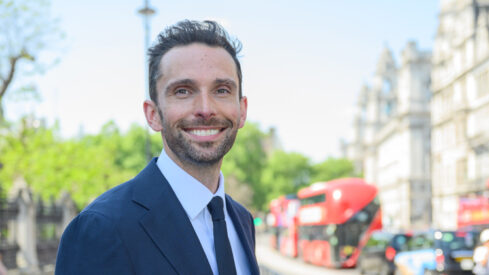




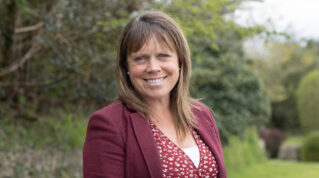

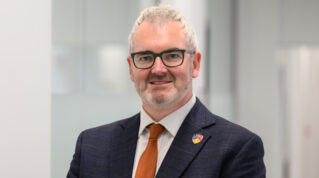



Your thoughts